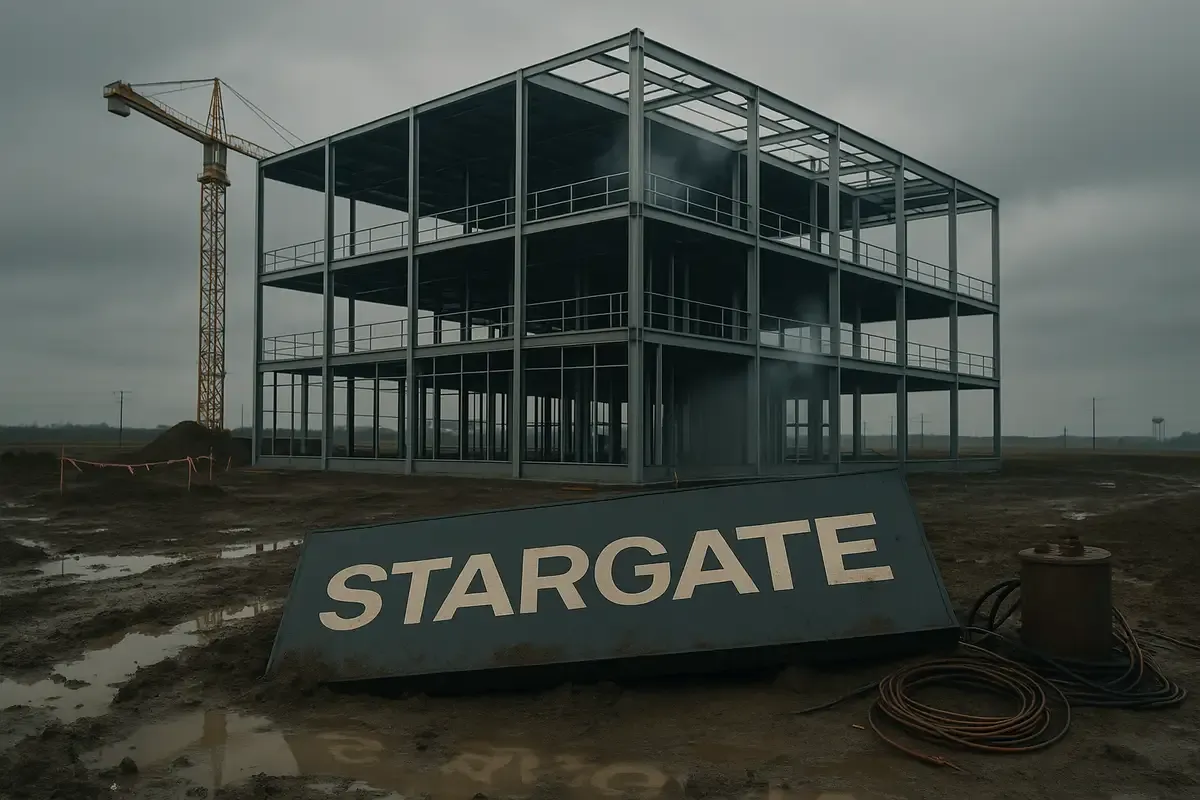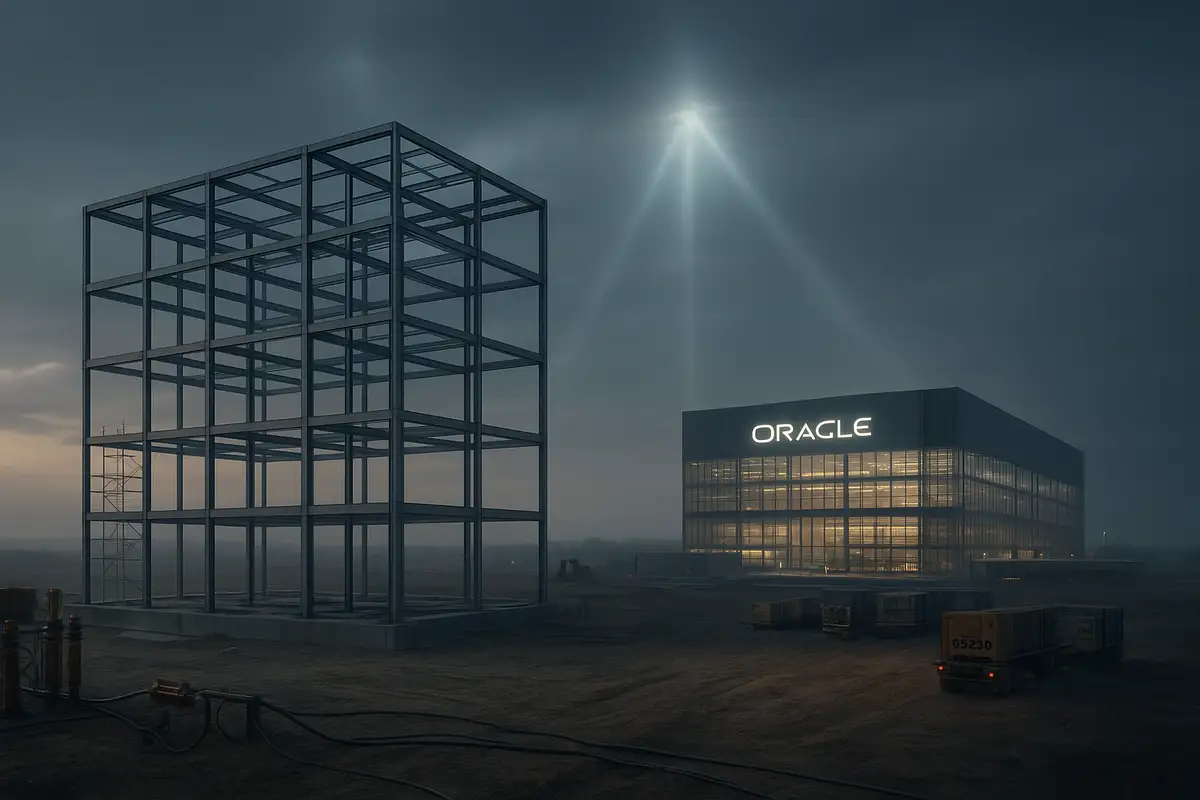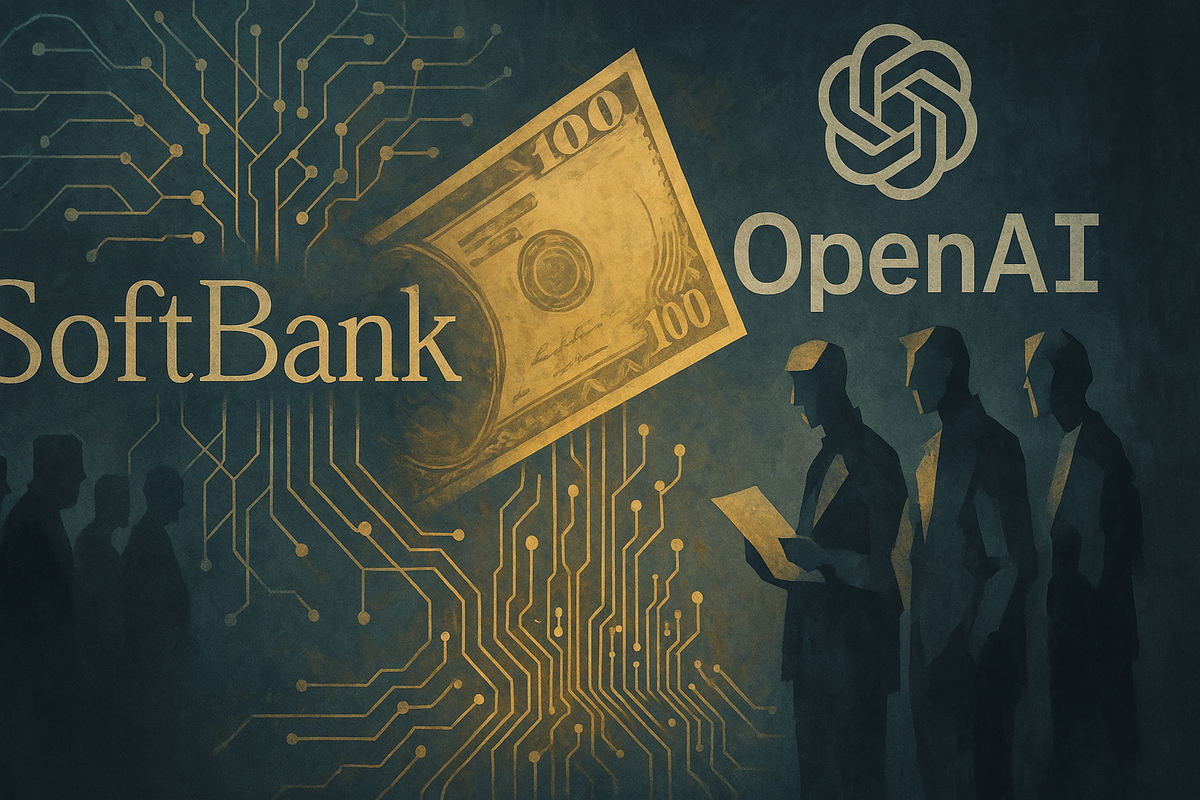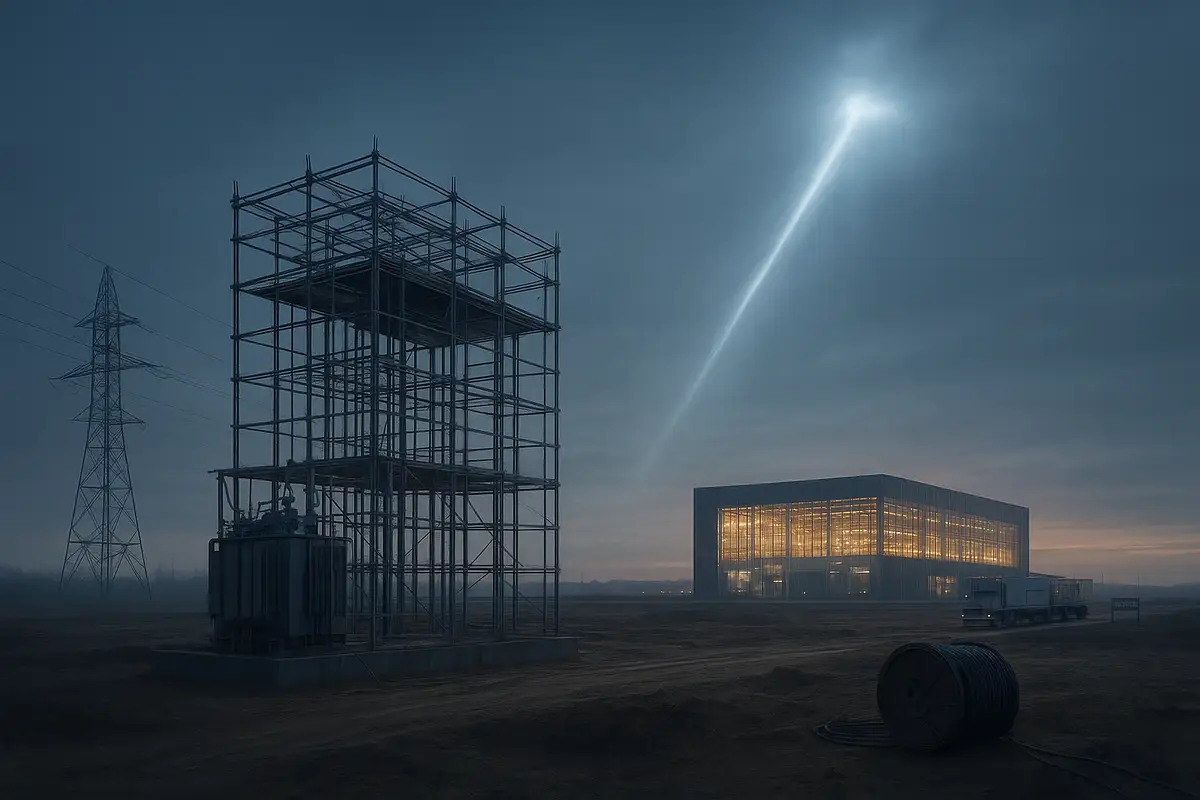Moltbot Melts Down. SoftBank Goes All In on Altman.
Moltbot rebrand triggers crypto scam and Cloudflare rally. SoftBank risks credit downgrade on $30B OpenAI investment. Plus Claude Code setup guide.
OpenAI's $500B Stargate partnership with SoftBank collapsed after six months of disputes. Zero data centers built. Now OpenAI scrambles for $40B in fresh funding to go it alone, signing costly deals that dwarf their revenue.

💡 TL;DR - The 30 Seconds Version
👉 OpenAI's $500B Stargate project with SoftBank collapsed after six months, forcing the company to reopen its $40B funding round on July 28.
📊 The partnership built zero data centers despite White House fanfare, scaling back from $100B immediate investment to one small Ohio facility.
🏭 OpenAI signed expensive independent deals: $30B annually with Oracle and $11.9B over five years with CoreWeave for computing power.
🌍 SoftBank's $30B investment—the largest startup investment ever—can drop to $10B if OpenAI doesn't restructure by year-end.
💸 The Oracle deal alone costs three times OpenAI's projected annual revenue, raising questions about affordability despite their $300B valuation.
🚀 Going independent will cost billions more than partnerships, showing how hard it is to coordinate massive AI infrastructure projects.
Remember that splashy White House announcement six months ago? Sam Altman, Donald Trump, and SoftBank's Masayoshi Son stood there beaming about Stargate—their $500 billion AI infrastructure project that would kick off America's "golden age" of artificial intelligence.
Well, that golden age didn't last long. Stargate has built exactly zero data centers. OpenAI and SoftBank can't stop fighting about basic details. And now OpenAI is scrambling to reopen its $40 billion funding round on Monday, July 28, hunting for cash to go it alone, WIRED reports.
It's a mess that shows just how shaky OpenAI's position really is, even with a $300 billion valuation.
The partnership fell apart almost immediately. OpenAI and SoftBank couldn't agree on where to build data centers or how to structure deals. SoftBank pushed for sites tied to SB Energy, its own energy company. OpenAI wanted something else entirely, according to the Wall Street Journal.
Both companies kept saying everything was fine. Son and Altman even did a joint video appearance at a SoftBank event last week. But Oracle CEO Safra Catz cut through the PR speak during an investor call: "Stargate is not formed yet."
That grand $100 billion immediate investment? It's now one small data center in Ohio, maybe finished by December, the WSJ reports. They went from promising coast-to-coast AI dominance to a single building in the Midwest.
Think of it like announcing you'll colonize Mars, then settling for a shed in your backyard.
OpenAI didn't wait around. While Stargate collapsed, they cut a massive deal with Oracle—$30 billion annually for 4.5 gigawatts of capacity, the Journal reported. That's enough electricity to power four million homes. About two Hoover Dams worth of power.
They also signed an $11.9 billion, five-year deal with CoreWeave. Combined, these agreements nearly match what Stargate promised for this year.
But here's the catch: OpenAI's Oracle deal alone costs three times their projected annual revenue. For a company that's already bleeding billions, that's quite a gamble.
This explains the sudden fundraising push. Earlier this year, OpenAI raised $40 billion led by SoftBank's $30 billion commitment—the biggest startup investment ever, according to the WSJ. But that money went to buying out existing shareholders and employees, not funding operations.
Now they need actual cash to run the business. WIRED confirmed that two sources familiar with OpenAI's plans say the company is seeking money from new and existing investors as part of the March round.
There's a big difference between paying off your mortgage and needing grocery money. This is grocery money.
SoftBank's investment has conditions, though. The Japanese company can cut its commitment to $10 billion if OpenAI doesn't restructure by year-end. OpenAI is trying to shift from its nonprofit roots to a public benefit corporation. That's proving trickier than expected.
Stargate isn't OpenAI's only problem. A planned $3 billion acquisition of coding startup Windsurf died in July after Microsoft killed it. Microsoft wouldn't grant IP rights for something that competed with GitHub Copilot.
Anthropic co-founder Jared Kaplan finished off the deal, telling investors "it would be odd for us to sell Claude to OpenAI." Then Google swooped in and hired away Windsurf's best people.
Meanwhile, everyone else is building AI infrastructure. Elon Musk launched Grok 4. Meta is spending "hundreds of billions" on data centers. The partnership that was supposed to lead this charge can't even get started.
OpenAI also dropped plans for a controversial corporate restructuring after facing serious pushback. They wanted to abandon their nonprofit structure for a for-profit setup. That would have made fundraising easier but betrayed their original mission.
Board Chair Bret Taylor had to issue a clarifying statement: "OpenAI was founded as a nonprofit, and is today overseen and controlled by that nonprofit. Going forward, it will continue to be overseen and controlled by that nonprofit."
Translation: we're staying put.
For SoftBank's Masayoshi Son, this is another expensive setback in his quest to dominate AI investing. Despite raising more than $140 billion across two massive funds, he missed OpenAI and every other major AI company before ChatGPT launched, the WSJ noted.
His track record includes WeWork and construction startup Katerra—both disasters. His 2016 Arm acquisition worked out better, but he's still playing catch-up in the AI space he desperately wants to own.
The irony is perfect. Son committed $30 billion to OpenAI right as their infrastructure partnership was falling apart.
OpenAI and SoftBank put out a joint statement saying they're "moving at hyperscale and speed" on multiple projects. But actions tell a different story. OpenAI is cutting deals without SoftBank, using the Stargate name for projects the partnership doesn't fund, and frantically seeking new investors.
SoftBank owns the Stargate trademark, which adds another wrinkle to this corporate drama.
Why this matters:
Read on, my dear:
Q: What exactly is Stargate and why was it such a big deal?
A: Stargate was supposed to build massive AI data centers across the US by 2029, creating over 100,000 jobs. It got White House backing because it would boost America's AI computing capacity against China. The name comes from a 1994 Kurt Russell movie about aliens.
Q: How much money has OpenAI raised in total since 2015?
A: OpenAI has raised $63.92 billion since 2015, according to PitchBook. Major backers include Microsoft, Andreessen Horowitz, Sequoia Capital, Nvidia, and now SoftBank with the largest single investment at $30 billion.
Q: What does 4.5 gigawatts of computing power actually mean?
A: It's enough electricity to power about four million homes—equivalent to two Hoover Dams running at full capacity. For context, that's more power than most small countries use and represents enormous AI processing capability.
Q: Why does OpenAI need so much computing power anyway?
A: Training newer, better AI models like ChatGPT requires massive data processing. Each generation needs more compute power than the last. OpenAI is betting big that revenue will grow fast enough to pay for these expensive commitments.
Q: What happens if OpenAI doesn't restructure by December 31?
A: SoftBank can cut its investment from $30 billion to just $10 billion. The restructuring requires approval from attorneys general in California and Delaware, where OpenAI would shift from nonprofit control to a public benefit corporation structure.
Q: How does OpenAI's spending compare to other AI companies?
A: Meta is spending "hundreds of billions" on its own data centers, while Elon Musk's xAI recently launched Grok 4. OpenAI's $30 billion annual Oracle commitment is unprecedented for a startup, showing the massive scale of the AI infrastructure race.
Q: Why specifically Ohio for the single data center that's left?
A: The sources don't specify why Ohio was chosen, but it's likely due to cheaper electricity costs, available land, and state incentives. Ohio has been actively courting tech companies with favorable policies for large-scale data center projects.
Q: What's the difference between a nonprofit and public benefit corporation?
A: A nonprofit prioritizes mission over profits. A public benefit corporation can return money to shareholders while also pursuing public good. OpenAI wants this change to make fundraising easier, but critics say it abandons their original mission.



Get the 5-minute Silicon Valley AI briefing, every weekday morning — free.